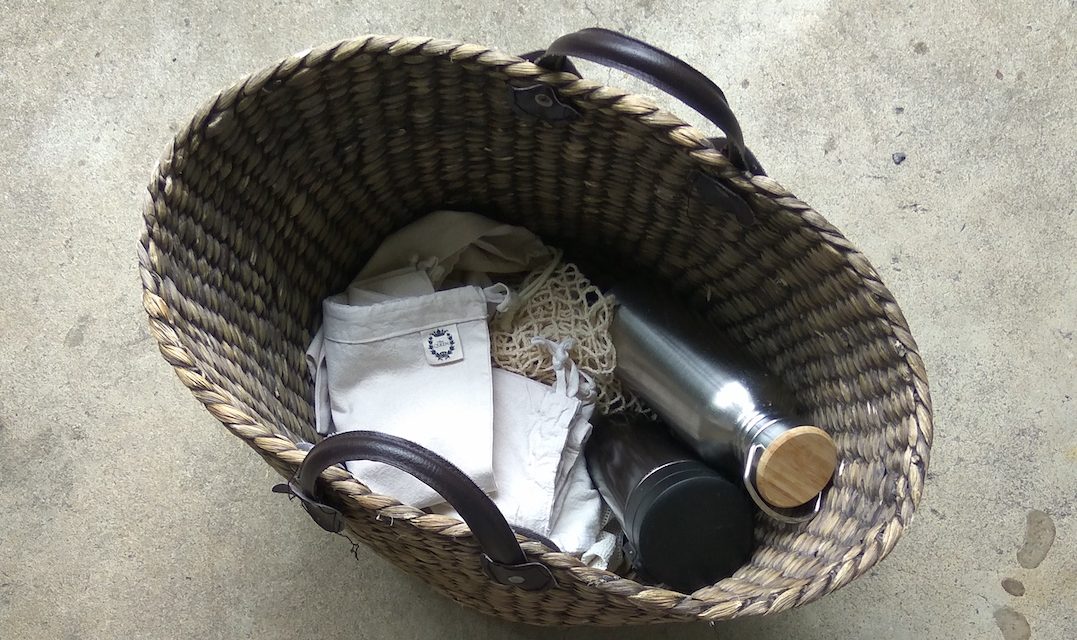19 tactics to use your cloth bags at the checkout and remain sane
Be ready to be the tallest poppy
You just bought or even better, proudly sewed your own produce bags out of an old shirt. You are well underway to becoming an eco-hero and it feels good.
But here is the thing, when you decide to start using your produce bags at the supermarket you are likely going to experience reactions from fellow customers and checkout operators. It has nothing to do with you. You will simply act as a trigger and awaken negative feelings in other people. You will force the checkout operator to alter polished routines. Just for you. You will slow down the process at the checkout for other customers. You will hold a mirror reflecting the guilt of the customer who still uses disposables. You basically are a fly in the ointment.
And this, will stand in the way of your newly found quest to save the planet. It will fill you up with one uncomfortable new reality : awkwardness.
19 tactics that can help you navigate the awkwardness
- Choose your timing. Consider going at slower hours when there is less likely to be lines of stressed people everywhere.
- Partner up. Go with a partner, divide the list and shop separately. Go through the checkout one after the other, helping each other to pack.
- Educate your kids. If you have to take your kids, train them to help. One putting stuff on the belt, the other packing.
- Pack intelligently. Packing starts when you put the articles on the belt. Place the items that will need more time packing first and the other ones last. Have your bags ready and start packing as soon as the teller starts scanning articles. Try to keep up.
- Buy less. Shop more often.
- Be one with the Universe. Embrace the conscious decision to be a better citizen of this planet. Abhor the fast paced wasteful world and just take your time. And if using reusable bags adds another 30 seconds to a transaction … then that time is the price the people behind you have to pay for you helping the environment.
- Anticipate. Have everything you need ready to go so you don’t feel like you are holding people up.
- Get a box. If getting things in the bags takes too long, place a cardboard box in the trolley and put everything in there. Pack in your bags in a quieter place or directly in the boot of your car.
- Use baskets. Use wicker baskets. Not only are they pretty but it is much easier to place items in a basket than in a soft bag.
- Go through the self checkout.
- Buy time. Have your credit card out of your wallet or in an easy-to-reach pocket, or put your wallet on the counter where you swipe. Since the chips take a bit to read sometimes, save packing your last items until after you get your credit card in. The machine can start reading it while you finish packing.
- Do your shopping in two lots. All heavy/awkward items first. Go and put them in your car. Then come back and shop for your light produce at the self checkout.
- Be a pain. They can’t move on to the next person until you’ve paid, so just don’t pay until after you’ve finished packing up your groceries.
- Embrace the activist in you. Have a leaflet ready about ocean pollution and give it to the person following you.
- Drop the ego. For shoppers, the waiting is the hardest part, if you know you are slow you can always let the impatient person go in front of you. It will change the taste of the next ten minutes for everybody.
- Start engaging in conversation in the queue. (their bags or an item they just purchased is always a good starter). Explain why you are likely going to take longer to pack. They might even offer to help.
- Choose your checkout wisely. Look around, you want a friendly chatty cashier and a line of patient and lonely shoppers.
- Let them be. If you were the next person in line, you would be understanding. Let others be grouchy in their own grouchy world.
- Pay cash, small notes and coins. The cashier will need more time to count the money.

It might be time for you to explore other shops in your town. Bulk stores provide paper bags or jars for bulk purchase. They welcome customers bringing their own. Cashiers are very used to dealing with all sorts of bags and containers and won’t mind explaining how to do it. If you bring your own, you will only need to have it weighed before filling it. They usually use indelible markers to write the weight on your container so it won’t wear off when washing.
If your town has a farmers’ market, check it out. Stall holders mostly keep away from plastic. Organic stores‘ customers usually shop at a slower pace and are very plastic-conscious. The goal is to shift your perception and see shopping not as something you have to do (so you can finally start living before and after it), but as a place where your choices have a definite impact on the world. To experience that shift, you might need to work on your creative skills. For some, shopping can even become an enjoyable experience. You can learn a lot about food and consumerism if you care to look, shopping mindfully will no doubt grow your eco-awareness. It is a place where human connections are made and where you can practice kindness under stress. It is an opportunity to do your bit for the planet.
Grab your reusable bags and turn shopping into an activist moment. Because it is one.
